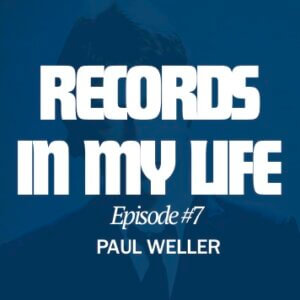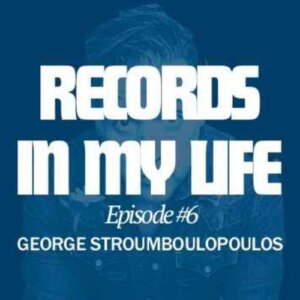
Can’t Love
Turn To Crime
Label: Mugg & Bopp Records / Old Flame Records
Rating: 7/10
In some respects, intro track “I” on Turn To Crime’s debut album, Can’t Love, fairly accurately sums up the contents of the record. Even if it is just a rotating-speaker organ humming away for 56 seconds before winding down in that tape-reel detuning sort of way, it’s as good an introduction as any to the charismatic, basement-fidelity songs to follow.
At its heart, Can’t Love is a record built to appeal to people that like records. No one particular genre matches up against the record’s full run—production changes from track to track to suit the mood, but one thing that is consistent is that it’s miles away from frontman Derek Stanton’s last project, Awesome Color, and their punk-tinged blues offerings. The title track’s massive, and massively distorted, snare hits compliment Stanton’s reedy voice and heavy refrains. It’s a simple song, hinging on the singer’s ability to project a nonchalant, cigarette-equipped vagabond into the ears of the listener, a feat Turn To Crime pull off with aplomb.
“Sunday’s Cool” picks up where “Can’t Love” left off, trading hall-recorded drum fills for an 808 and the lazy feeling of the backing track being looped around Stanton’s crooning. The guitar spiralling away in the background twirls back and forth between ’50s dirty-blues rhythm and crisply-echoing lead lines while the rest of the band is content in sounding like a reel-to-reel stuck running in circles.
Mid-track “Pine Box”, though, is where Can’t Love picks itself apart. That same Hammond tone from “I” creeps back in with a warble, and it takes a full third of the running time for vocals to creep into the mix. In a show of fuckery, when Stanton starts belting out slow lyrics it’s with a cave of reverb behind each word and a tremolo-rich guitar playing along beside him—kraut is not what Awesome Color fans are expecting half-way through a new record by the same founder, and that’s probably why it’s there. It’s a fantastically interesting departure, even if the song on its own isn’t quite as rich or complex as the bluesier numbers on the album. It’s followed by the Elvis-esque Americana-soaked “Forgiveness”, daring listeners to keep up in the back-and-forth.
At times, this denial of expectations can be just as grating as it is morbidly fascinating. If any of the experimentation on tracks like “Nightmares” showed its head on the pop-friendly songs of the record, the brazenly dissonant noises might feel more justified—instead, it comes off as the band pointing a large and gnarled middle finger squarely at their singles-literate audience. It’s a damn good thing, then, that the record ends on a high note with “I Can’t Not Love”, a sprawling 10-minute jam void of lyrics or pretense. It doesn’t pay homage to any dead genres of American musical society, and even without Stanton’s familiar yowl the band’s charisma manifests itself again in a radically upbeat instrumental affair. It’s not quite Broken Social Scene’s phenomenal outro “It’s All Gonna Break”, but the Detroit denizens end their swerving record with a no-fi band jam reminiscent of No Age. Like the other tracks on the record, it hardly makes sense compared to the material that preceded it, but in the case of Can’t Love it hardly matters.
Fraser Dobbs
Latest Reviews
Trending
Tracks
Related Albums
Related News
Advertisement
Looking for something new to listen to?
Sign up to our all-new newsletter for top-notch reviews, news, videos and playlists.









